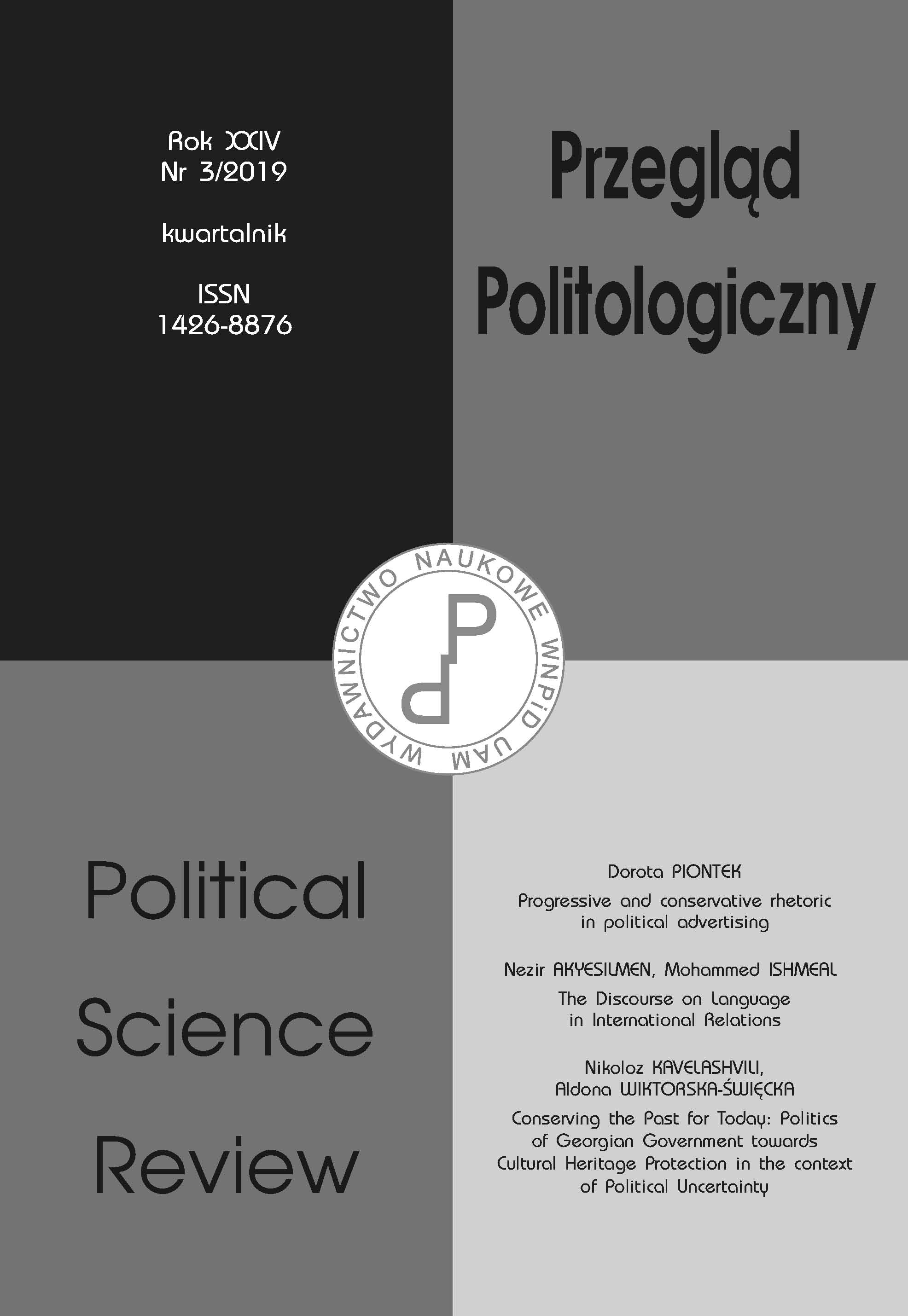The Discourse on Language in International Relations
The Discourse on Language in International Relations
Author(s): Nezir Akyesilmen, Mohammed IshmealSubject(s): Politics, Geopolitics
Published by: Uniwersytet Adama Mickiewicza
Keywords: language; intellectual hegemony; periphery; multiculturalism; International Relations (IR)
Summary/Abstract: Little has changed since Stanley Hoffman declared International Relations (IR) an American Social Science and John Hobson highlighted the “lack of value-free and universalist theories of inter-state relations.” Since the 1970s in particular, with the end of the Cold War and developments in Information and Communication Technologies (ICT), the discipline of IR has faced major challenges to its core conceptual and theoretical framework. Despite several systemic changes and the emergence of a new environment in international relations, the field is still heavily reliant on the old, inadequate and/or value-laden concepts of the early twentieth century. Moreover, the discipline has been overloaded by a set of Eurocentric and ethnocentric concepts which lead IR students to question its international character. It is debatable whether this is due to incompetence or misuse of language. This article aims to deconstruct mainstream and hegemonic concepts in IR in a constructive manner. This paper utilizes a qualitative method of discourse analysis to re-examine the relationship between the use of language and context, often taken for granted, which limits the understanding of the concepts used in the discipline of IR to promote innovation and progress in the field.
Journal: Przegląd Politologiczny
- Issue Year: 2019
- Issue No: 3
- Page Range: 79-91
- Page Count: 14
- Language: English

